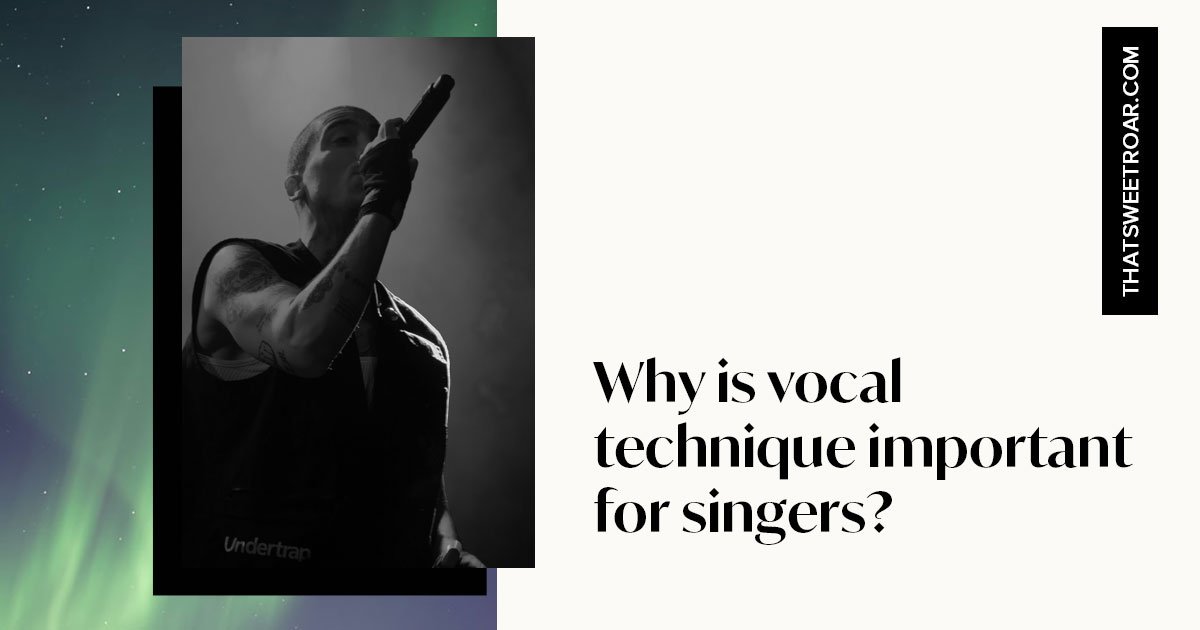Why is Vocal Technique Important?
This might not be the article you were expecting.
I don’t believe that every untrained singer is doing horrendous damage to their voice.
I don’t believe there is one ultimate school of thought on vocal technique.
And I think sometimes learning technique can cause nearly as many problems as it fixes.
Hear me out.
What I’m passionate about is helping you to express yourself in the way YOU want to, safely and without limitations or barriers.
And technique almost always plays a part in that.
But it’s a PATHWAY rather than an entry requirement.
What is vocal technique?
Technique is, at its most simple, is HOW you create the sound you would like to express.
Many singers talk about wishing they had better control, consistency and versatility when they talk about sharpening their singing skills.
Technique is how we fill the gaps between what we can imagine and what we can currently physically create with or voices.
So it’s worth exploring when you can’t quite create the sound or colour you’d like to - YET.
And when you feel that something isn’t quite right (whether that’s a strained feeling in your throat or a husky or hoarse voice after singing for a while).
Often we need to learn new, more efficient ways of using our voice in order to build reliability and longevity.
The act of training your voice as a singer is replacing old habits with new ones (carving out new neural pathways in your brain, which takes time and repetition).
There is no ONE universal technique
I’ve learned from over a dozen teachers who taught the ideas from many different schools of thought.
Estill, Speech Level Singing, CVT, appoggio classical training - I’ve devoured them all.
Some coaches will teach you a completely new language to go with your technique - chest, mixed and head voice, M1 and M2, edge, cord coordination, laryngeal tilt… I could go on and on.
Some singers LOVE and can make sense of those languages.
AND HERE’S THE VITAL PART - some singers don’t.
How it is explained MATTERS
In my personal experience, focusing on some of the more scientific language and ideas surrounding singing took me further away from my expression.
It created a binary of right and wrong, good and bad.
I’d spend my lessons overthinking and overanalysing, frustrated because I wasn’t getting the sound I wanted.
My teacher would tell me to “add more support” without describing what that should FEEL like and how I could create those sensations and relationships in my own body.
I was constantly confused, doubted my abilities and was crippled by imposter syndrome.
If this reminds you of your own experience, I’m so sorry.
Please just know that it’s not YOU, it’s the way technique was explained to you.
Learning the physiology and science of singing was important for my understanding as a teacher so I could TRANSLATE it into human language for my students.
To offer them solutions to the problems they were having with their voices.
To fill the gaps between what they could imagine and what they could physically create with their voices.
To help them feel what was the most efficient and safe way of delivering a certain quality or colour.
To build their confidence and trust in their voice, NOT erode it with rigid rules or right or wrong.
Please make sure this isn’t missing
You cannot separate your mind from your body (your instrument).
Too often technique tends to focus solely on the physical and doesn’t open up a conversation about how you’re feeling.
Remember that your thoughts and emotions are always either helping or getting in the way of your ability to express yourself.
If you’re worrying about a high note in the next line for example, it will change the way you sing the current line.
If you’ve convinced yourself you’ll take a mistake, you might hold your breath or hesitate - impacting the way the sound comes out and how it feels.
Technique is really to SUPPORT you to express in the way you want to express.
To be able to trust your voice and enjoy the ride.
Technique, in my opinion, should help you get to where you want to go safely, not make you second guess or doubt where you were going in the first place.
If that’s not your experience with developing your voice, it might be time to try a new approach.

